Black magic is a term that evokes intrigue, fear, and mystery. Often associated with malevolent intentions, it refers to the use of supernatural or magical powers for selfish, harmful, or destructive purposes. While its definitions and interpretations vary widely across cultures and time periods, the concept of black magic has remained a potent element in human history and imagination. In this article, we explore its origins, practices, cultural interpretations, religious perspectives, modern adaptations, and the controversies surrounding it.
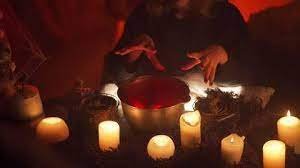
1. Definition and Differentiation
Black magic is often distinguished from white magic, though the distinction is not always clear-cut. While white magic is associated with benevolent practices such as healing, protection, and spiritual growth, black magic focuses on manipulation, harm, and control. This duality highlights a broader philosophical question: Is magic inherently good or evil, or is it defined by the intent of its practitioner?
For example, a curse intended to protect a community by deterring invaders might be seen as white magic by some and black magic by others. This subjectivity underscores the complexity of categorizing magical practices.
2. Historical Origins
The origins of black magic can be traced to ancient civilizations where rituals and spells were integral to daily life. These early practices often blurred the lines between religion and magic.
- Mesopotamia and Egypt: Ancient Mesopotamians believed in powerful spells to summon deities or spirits to harm enemies. Similarly, the Egyptians used magical incantations written on papyrus to achieve both protective and destructive ends. The “Book of the Dead” contains spells to protect the deceased, but these could be adapted for harm.
- Greece and Rome: The Greeks categorized magic into two types: theurgy, which sought divine intervention, and goetia, which involved darker, more manipulative practices. Figures like Circe and Medea in Greek mythology were emblematic of black magic, using potions and curses to manipulate others.
- Middle Ages (Europe): Black magic became synonymous with witchcraft during this period. Accusations of sorcery often led to brutal trials and executions. The Church viewed black magic as heretical and associated it with demonic worship.
- Asian Traditions: In India, esoteric practices like Tantra were sometimes unfairly labeled as black magic due to their misunderstood rituals. Similarly, in China, Taoist practices involving the manipulation of spirits were viewed with suspicion.
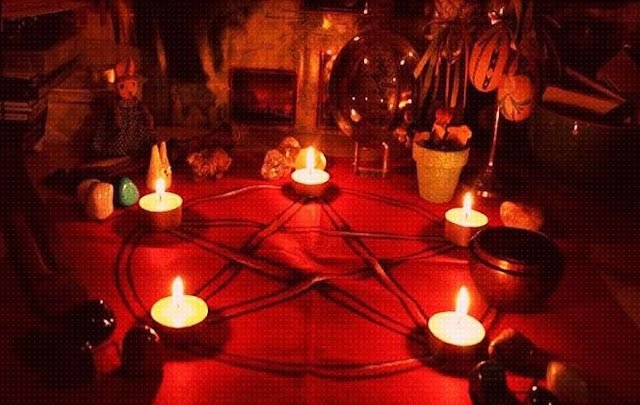
3. Practices in Black Magic
Black magic encompasses a wide range of rituals, tools, and intentions. Common practices include:
- Curses and Hexes: These are verbal or written spells intended to bring harm, bad luck, or misfortune to a target.
- Sympathetic Magic: This involves using objects symbolizing a person, such as hair, nails, or a doll, to influence their actions or well-being.
- Necromancy: The summoning of spirits of the dead, often to gain secret knowledge or manipulate others.
- Sacrificial Rituals: Offering valuable items, animals, or symbolic gestures to invoke supernatural powers.
- Binding and Control: Spells designed to dominate or influence another person’s will, often in romantic or competitive contexts.
4. Cultural Interpretations
Black magic manifests differently across cultures, reflecting local beliefs and traditions:
- Africa: Practices such as juju or muti often incorporate elements of black magic. These rituals may involve charms, spells, or invoking spirits to harm or protect.
- Caribbean and Americas: In Vodou, certain practices, like creating zombies or casting curses, are often misrepresented as black magic in Western media. However, many Vodou practitioners emphasize balance and ethical conduct.
- India: Fear of black magic persists in regions like Bengal and Assam. Accusations of practicing “dark Tantra” or using spirits for harm can lead to social ostracization.
- Islamic Traditions: The Quran mentions sihr (magic) and condemns its misuse. Islamic folklore often involves jinn, spirits that can be invoked for both good and evil purposes.
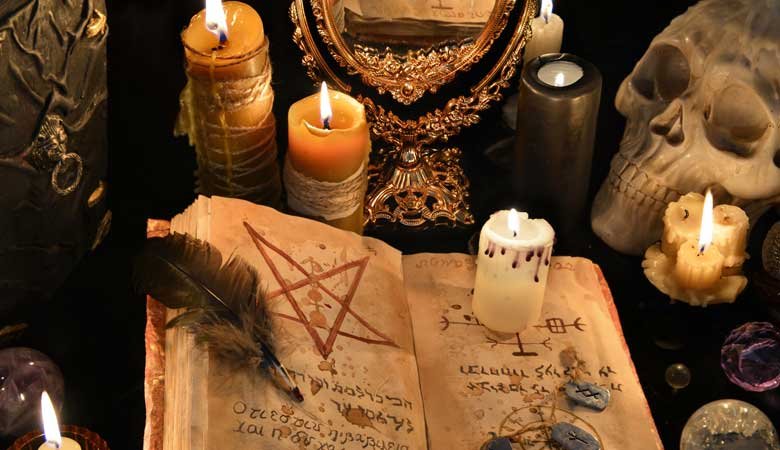
5. Beliefs and Modern Interpretations
In contemporary times, black magic is interpreted in various ways:
- Western Occult Traditions: Figures like Aleister Crowley blurred the lines between black and white magic. Crowley’s philosophy, known as Thelema, emphasized the importance of individual will, though his practices were often sensationalized.
- Psychological Perspective: Skeptics argue that black magic relies on the placebo effect or psychological manipulation. Belief in a curse can create stress, paranoia, or even physical symptoms.
- Media and Pop Culture: Films, books, and video games frequently depict black magic as dark and seductive, reinforcing stereotypes and popularizing the concept.
6. Black Magic in Religion
Religions often address black magic, usually condemning it as a dangerous or forbidden practice:
- Christianity: The Bible warns against witchcraft and sorcery (e.g., Deuteronomy 18:10-12). Historically, the Church associated black magic with the devil and heresy.
- Hinduism: While some ancient texts describe rituals for harming enemies, they caution against their misuse and emphasize karma.
- Islam: Magic is considered a grave sin when used for malevolent purposes. Stories of King Solomon controlling jinn are sometimes interpreted as a form of magic.
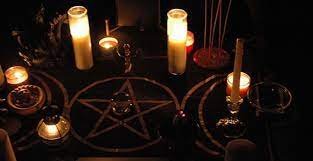
7. Risks, Symptoms, and Methods of Treatment or Prevention
Risks: Practicing or being targeted by black magic can lead to:
- Psychological Effects: Anxiety, paranoia, and fear stemming from belief in being cursed.
- Social Isolation: Accusations of practicing black magic can result in ostracization or violence.
- Physical Harm: Rituals may involve self-harm or dangerous practices, and the stress induced by fear of black magic can affect physical health.
Symptoms of Black Magic Influence: Victims often report:
- Unexplained illnesses or fatigue.
- Persistent bad luck or misfortunes.
- Nightmares, sleep disturbances, or feelings of being watched.
- Psychological symptoms like depression, anxiety, or obsessive thoughts.
- Paranormal experiences such as unexplained sounds or sensations.
Methods of Treatment and Prevention:
- Spiritual Cleansing: Rituals such as smudging with sage, bathing in salt water, or reciting prayers can neutralize negative energy.
- Protective Talismans: Wearing amulets, charms, or carrying sacred objects can help ward off harmful influences.
- Seeking Help: Consulting spiritual leaders, shamans, or priests who specialize in removing curses or negative energies.
- Psychological Support: Therapy can address the stress and paranoia caused by belief in black magic.
- Strengthening Belief Systems: Faith in a higher power or protective deity can provide reassurance and resilience against fears.
Prevention strategies include avoiding individuals known for practicing harmful magic, maintaining positive energy in one’s environment, and fostering supportive communities.

8. Ethics and Morality
The ethical implications of black magic are a subject of debate. Some argue that intent determines morality. For example, is it ethical to use a curse to protect oneself or loved ones? Others believe that any use of magic for harm, regardless of intent, is inherently wrong.
9. Scientific Skepticism
From a scientific perspective, black magic is viewed as superstition:
- Lack of Evidence: Rituals and spells lack empirical support for their effectiveness.
- Psychosomatic Effects: Fear or belief in black magic can trigger stress, anxiety, and even physical symptoms, reinforcing the perception of its power.
10. Common Fears and Safeguards
Fear of black magic remains widespread in many cultures. Common safeguards include:
- Amulets and Talismans: Worn to ward off curses or evil spirits.
- Cleansing Rituals: Practices like smudging with sage or reciting prayers to neutralize negative energy.
- Community Stigma: Accusations of black magic can lead to social ostracization, especially in conservative societies.
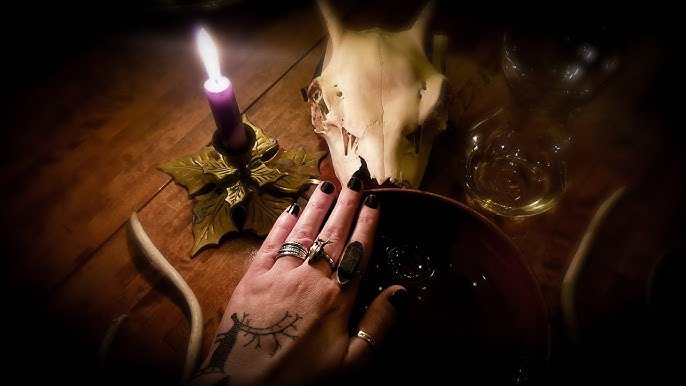
11. Modern-Day Black Magic
In the digital age, black magic has taken new forms:
- Online Services: Websites offer spells and curses for a fee, often exploiting vulnerable individuals.
- Legal Issues: Some countries criminalize witchcraft, while others protect it as a form of religious expression.
12. Pop Culture Representation
Black magic is a recurring theme in media:
- Books and Movies: From Harry Potter to The Craft, black magic is dramatized as dark and alluring.
- Games and Role-Playing: Magic systems in games like Dungeons & Dragons often categorize spells into dark and light, reflecting broader cultural narratives.
13. Contemporary Debates
- Is Magic Real? Philosophical and religious debates continue about the existence and impact of magic.
- Cultural Appropriation: Practices like Vodou or Tantra are often misrepresented in popular media, sparking criticism from practitioners.
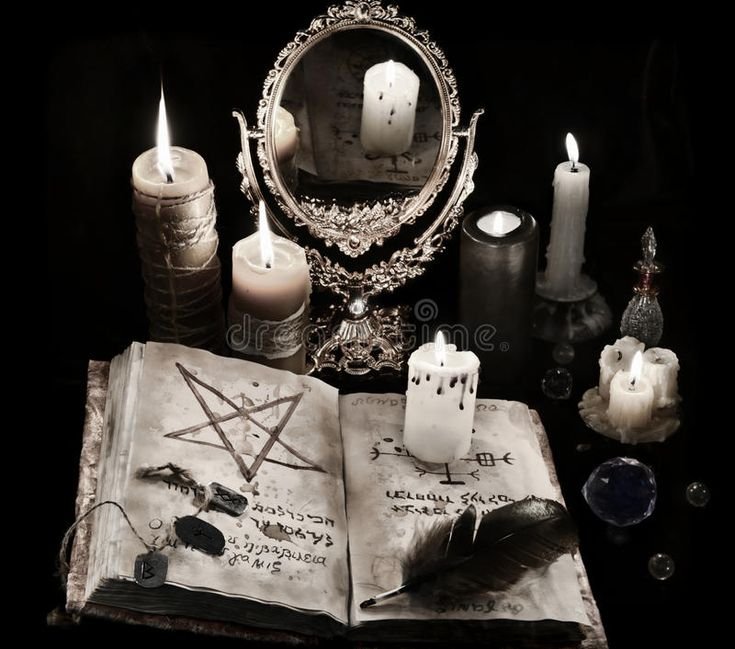
14. Examples and Practical Applications
The table below illustrates common practices and their potential uses:
| Practice | Purpose | Example |
|---|---|---|
| Curse or Hex | Harm or misfortune | Writing a curse on parchment and burning it |
| Sympathetic Magic | Influence a target | Using a voodoo doll with personal belongings |
| Necromancy | Contact the dead | Performing a seance to summon a spirit |
| Protection Spell | Shield against harm | Creating a salt circle around one’s home |
| Binding Ritual | Control another’s actions | Tying knots with symbolic intent |
Example Ritual: Simple Binding Spell
- Write the name of the target on a piece of paper.
- Wrap the paper with black thread, symbolizing control.
- Chant intentions while tying knots, such as: “By this knot, I bind thee.”
- Store the bound paper in a secure place.
Black magic is often considered one of the most dangerous types of magic due to its focus on manipulation, harm, and control over others. Here are key reasons why it holds this reputation:
- Malevolent Intent: It is typically associated with the use of supernatural powers for evil and selfish purposes, aiming to harm others. Times of India
- Psychological Impact: Belief in black magic can lead to significant psychological distress, including fear, anxiety, and delayed help-seeking behaviors, especially in cultures where such beliefs are prevalent. Nmji
- Cultural Stigma: In many societies, black magic is linked to negative cultural beliefs and practices, which can impede access to mental health treatment and contribute to social stigma. Indonésie à Melbourne
- Unpredictable Consequences: Practices involving black magic can have unintended and harmful outcomes, potentially affecting both the practitioner and the target in unforeseen ways. Comment ça marche
- Association with Mental Health Misconceptions: In some cultures, symptoms of mental illness are misattributed to black magic or possession, leading to misdiagnosis and inappropriate treatment approaches. PubMed Central
- Exploitation and Fraud: The fear of black magic can be exploited by individuals claiming to offer protection or remedies, leading to financial or emotional exploitation. WKRG
These factors contribute to the perception of black magic as a particularly dangerous and harmful practice across various cultures and societies.
For a deeper understanding of the dangers associated with black magic, you might find the following video informative:
These factors combine to make black magic a subject of fear and caution, even among those who study or practice the occult.
Conclusion
Black magic remains a compelling and controversial topic, straddling the realms of history, culture, and imagination. While its practices and interpretations vary, its enduring presence in human narratives reflects a deep fascination with the unknown. Whether viewed as superstition, psychological manipulation, or genuine spiritual practice, black magic challenges us to question the boundaries of morality, belief, and power.


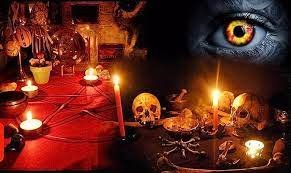



[…] Click here to learn more about this topic in a related article. […]
[…] Click here to learn more about this topic in a related article. […]
[…] Click here to learn more about this topic in a related article. […]